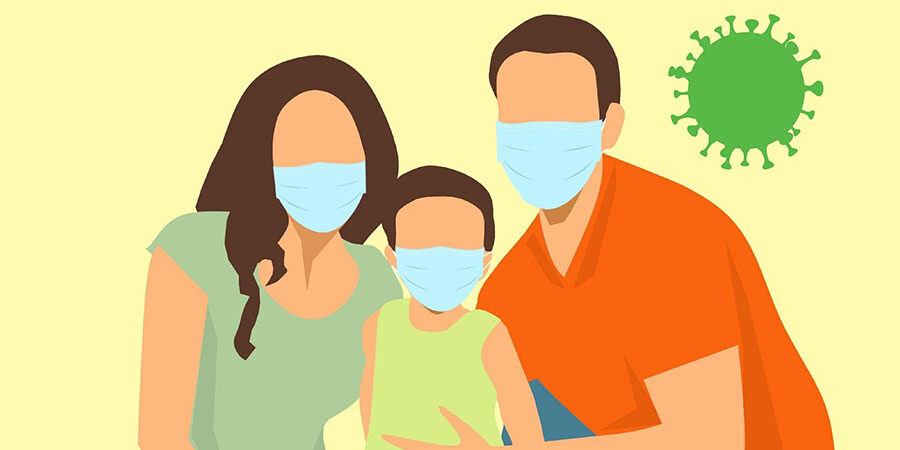Stay aware of the latest COVID-19 information by regularly checking updates from the WHO and your national and local public health authorities.
- Personal Protection and Hygiene
The practice of personal cleanliness and hygiene at all times of every individual in the community is vital to containing the spread of diseases and protecting the whole community. The following practices should be observed to halt the spread of COVID-19 virus from infected individuals:- Respiratory etiquette:
- Cough and sneeze into tissue or into shirt sleeve if tissue is not available. Dispose used tissues properly and disinfect hands immediately after a cough or sneeze.
- Avoid touching the eyes, nose and mouth to help slow the spread of the virus.
- Use face masks when necessary such as when you have respiratory infection/symptoms
- Practice hand hygiene.
- Perform regular and thorough handwashing with soap and water. Use alcohol-based hand sanitizers containing at least 60% ethanol or isopropanol when soap and water are not available.
- Respiratory etiquette:
- Social Distancing Measures:
- Whenever possible, keep a distance of at least 3 feet or 1 meter away from other people to reduce the possibility of person-to-person transmission. This distance should be observed even as to apparently healthy persons without symptoms.
- Avoid handshakes and “beso beso” as much as possible
- Stay at home and follow the government’s regulations on community quarantine/lockdown.
- Environmental Measures:
- Clean frequently-touched surfaces and objects, including cellphones,gadgets, tables, doorknobs, desks,
- Maintaining the environment clean, especially common-use areas and those with touchpoints such as railings, staircases, light switches, and the like.
- Clean surfaces such as tables, counters and sinks using a safe household disinfectant.
- Food Safety Measures:
- Avoid consumption of raw or undercooked animal products. Handle raw meat, milk or animal organs with care to avoid cross-contamination with uncooked food, as per good food safety practices.
- If possible, use utensils when eating. Avoid kamayan or boodle fights.
- When visiting live animal markets, wet markets or animal product markets:
- Practice general hygiene measures, including regular handwashing with soap and potable water after touching the animals and animal products
- Avoid contact with (a) sick animals or spoiled animal products (b) other animals possibly living in the market (e.g. stray cats and dogs, rodents, birds, bats) and (c) potentially contaminated animal waste or fluids on the soil or structures of shops and market facilities
- Do not slaughter sick animals for consumption. Bury or destroy dead animals and avoid contact with their body fluids without protective clothes.
- Boost your immune system.
Get 7 to 8 hours of uninterrupted sleep a day. Eat nutritious foods with high anti-oxidants (fruits and vegetables), avoid undue stress, and exercise regularly. - If you have fever, cough and difficulty breathing, seek medical care early.
Tell your health care provider if you have history of travel especially in China or if you have been in close contact with someone who has travelled from those places and has respiratory symptoms. - If you have mild respiratory symptoms but has no travel history to or within China:
Carefully practice basic hand and respiratory hygiene and stay at home until you fully recover - Unless necessary, avoid travels.
For safety, use face masks during the flight. Be adequately hydrated, especially during long-haul flights - Ventilate your home.
Open windows daily to allow air to circulate in your homes. This will also dry up damp spaces more easily. - Keep your throat moist.
Be adequately hydrated. Don’t drink fluids excessively, but take frequent sips of preferably warm or at least room-temperature water (60-80 cc for adults, 30-50 cc for children) every now and then, and whenever you feel thirsty. Those with dry throat are more susceptible to viral infection. - Stop smoking.
Smoking can dry the throat. It weakens the immune system and diminishes the integrity and defense mechanisms of the respiratory tract against the virus. - Take all precautions
Relax. Don’t panic. Worrying too much causes undue stress which weakens the immune system.
Let’s do our part and be responsible together we can win from Covid-19.



Leave a Reply